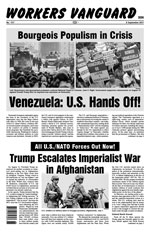
Black Slaves Aided Union Army (Letter) 3 August 2017 Dear WV I read with interest the exchange on whether or not the Civil War was fought over slavery. I think all parties concerned were aware that in fact, it was. Among my family heirlooms is a series of letters from a great-great-great uncle who was in a Heavy Artillery regiment of Connecticut Volunteers. In a letter dated 2 June, 1862, he wrote from his “camp ten miles before Richmond” to his brother: “...we went out scouting nearly every day ...The third time we went out we would all have been killed or taken prisoner but for the warning of two n-----s. There were two regiments of infantry and one masked battery lying in ambush for us on each side of the road. The n-----s met us when we had got within a mile of them and told the Col. We then turned back.” So it would seem that the Union had a built in spy network among the Black slaves who were keenly aware which side was which. John H. WV replies: We thank John H. for his letter, which is referring to the exchange, “Yes, the Civil War Was About Slavery” in WV No. 1115 (28 July). From early on the slaves recognized that the fundamental cause of the war was slavery and that emancipation would be its most profound outcome. Many black people, free and slave, were crucial to the Union spy networks. They risked their lives in dangerous missions behind Confederate lines to gather information on troop locations, strength, supplies and movements. Famously among them was Harriet Tubman, who was knowledgeable about the terrain from her days as an Underground Railroad conductor. In 1863, Tubman led troops under Colonel James Montgomery in a daring raid up the Combahee River that disrupted Confederate supply lines and liberated over 700 slaves. Another spy, Mary Elizabeth Bowser, a servant at Jefferson Davis’s house, was able to gain access to lists of troop movements and military strategies and sneak these papers out from under the Confederate president’s nose. Whether through the 200,000 black men who joined the Union Army and Navy or through complex spy operations, black people played a key role in the destruction of the slave order. John H.’s great-great-great uncle’s use of the “N” word in his letter reflected the contradictions of his era. While the Union troops were fighting to end slavery, many also shared the deeply seated racism prevalent in both North and South.
|
|
|||||||||||||||||||||||||||||||||||||||
